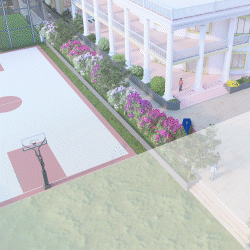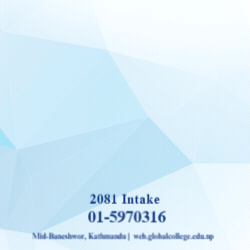Where are we going?
We use Google Cloud Translation Services. Google requires we provide the following disclaimer relating to use of this service:
This service may contain translations powered by Google. Google disclaims all warranties related to the translations, expressed or implied, including any warranties of accuracy, reliability, and any implied warranties of merchantability, fitness for a particular purpose, and noninfringement.


Do we want to make Nepal a developed nation? Many would call this question a fool. Should we find an answer to such a question? Of course we want to make our nation developed, happy and prosperous. If this is the answer, then another question arises - are we ready to accept the changes needed to make Nepal a developed nation?



The answer to this question is not easy. Teaching others to change is easy. It is difficult to change oneself according to that education. As it is easy to exclaim not to corrupt others. But how ready are we to act according to that proclamation while in power? The answer does not come from others. You have to close your eyes and look at your own face.
Personal and public aspirations
We see the creaky streets of developed countries. We are proud to study in the university there. We appreciate the standard of the university, the maintenance and beauty of the physical assets. We also think why the thought of doing this has not come to our country, but how many of us have tried to make this dream a reality when we reach the position? In our public aspirations comes the idea of a developed country. But even a small part of that imagination has to be found in individual activities. And the question arises - are we the conductors of change or the opponents of change? Only actions and not words tell the truth. Karma alone is talking about whether it is transformative or backward.
The question here is not only economic development. In every part of the national life, our actions show that we are the conductors of a developed Nepal or the promoters of the decline of the nation. Small actions are making this reality clear more than many big theoretical debates. We spend money to buy medicines for the health of the poor. That amount is the tax paid by the people. If we want to make Nepal a developed country, at least those who run the country should think that this is the people's money and should make good use of it. To make the goal of making a prosperous Nepal the basis of new changes or not?
The combination of these assumptions guides the socio-political structure and takes the form of a commentary on governmental legitimacy. Finding the answer to the question to transform yourself or not? Here the development is ultimately connected with the recognition of the individual. New machines and technology are not the only drivers of change. It is associated with the recognition of the person who is in charge of the decision. Connects with leadership.
Every change and rule has assumptions. These beliefs have created the structure of social stability. In the same way, why are we who are talking big about change, when millions of poor people's money is stolen from cooperatives, instead of giving justice to the people, why are we forgetting our recognition in the dirty game of power? Jahanian rule had its own recognition in Nepal. According to which a small group used the wealth of the state for their own interests but there was honesty in them.
The purpose of Jahanian rule was not the social and economic development of the people. They did not have this illusion and imagination. But all subsequent generations said - now we will make a new Nepal. Big speeches were made that we will establish a people-centered belief in place of the old belief. Images and visions of great philosophers and thinkers permeated the country. A wealth of imagination was submitted to destroy the old and establish a new world. In this process, there were processions, street struggles, and gun struggles. Many have lost their lives but where are we? There were many loud slogans of change but history played tricks on us. Those who lead others on the path of change are actually in the state of mind of Jahanian regime, nothing has changed there.
The feudal Jahanian regime was a group of rulers and nobles, who considered the country as their great treasure. Now this herd has become bigger. Jahanian rule is replaced by party rule. But the government value and recognition is almost the same. As it happens, exploiting the resources of the state as much as possible for the interests of a small herd but giving the slogan of progress in speech. After all, Chandrashamsher also opened Trichand College and Juddhashamsher expanded the industry. He also carried out social reforms that abolished the practice of sati and abolished slavery. But we call that rule Feudal rule. Because the exploitation of the common people of the hill-hill-terai was their focus and they had no illusions about it.
Today there is an illusion of change because there are new governing structures, but in reality, the belief that works is no different from that of the feudal herd. There is a structural change and the functional reality remains the same. Whether it is capitalist democracy or socialist transformation, the tradition of a small exploitative class advancing itself by giving new slogans has gained strength. As such, we give the slogan of revolutionary consciousness and united fight against class enmity. However, when we are in power, we run the government thinking that it is a natural necessity to plunder the taxes paid by the blood and sweat of the common people with that revolutionary consciousness. We do not see the whole country being hollowed out by corruption.
Our revolutionary and socialist thinking considers it natural for millions of young people to leave the country not only for work but also for study. We call for the generation of people who will build revolutionary consciousness and struggle on behalf of the people, but since there is no future in Nepal, the revolutionary rulers appear in the forefront to send the youth abroad. We gossip about the main contradictions of society, we talk about taking aim at the main enemy. We use populist terminology that we don't even understand. However, we turn a blind eye to the bitter reality that we ourselves are the enemy of the proletariat and the poor in the government's behavior, style and character.
Feudalism gone? As a
, we present ourselves to the public with the face of socialists, revolutionaries or the like. In practice, we are not ready to give up the trend of plundering the resources available in the country, either by following the exploitative style of the Jahanian regime or by paying. We call on everyone to join the great journey from capitalist democracy to socialist economy, but in practice we preserve the mindset of seeing our power and greed as the highest expression of revolution.
Let's make it the basis of public policy. The country will not develop with revolutionaries who rob the people, weaponize the administration by misusing resources, ensure the political and economic power of their bosses, extort more money from the money that comes in the name of development, and consider the blessings of foreigners as their stability.
Rather we are moving forward in the journey of hypocrisy. The form is revolutionary, the slogan is revolutionary, the essence is limited to opportunism, opportunism and economic exploitation. But, hiding a new form of feudalism to shock the people, we say - now feudalism is gone in the country. Well, the feudalism of Jahanian rule is gone, neo-feudalism, a new incarnation of a modified style of feudalism protected by party rule, is laying the groundwork. This should not happen. Now the question is, will a new form of Jahanian rule be established by misusing the trust of the people in the country, 'party neo-feudalism' or advance inclusive progressive liberalism?
So far, the gap between the form and essence of Nepal's rulers is increasing in this question. We are weakened by this contradiction. We are becoming dependent. We are reaching a position where we consider foreign challenges to our self-respect and self-respect as natural. Every young person who goes abroad to work or study feels this.
As soon as he gets a chance to have a glimpse of God, the leader who considers himself to be his close friend must have felt the need to have a secret darshan with a foreigner. The proletarian workers who cried because of the destruction of the industry must have felt it. Farmers who don't get fertilizer on time and housewives who run the kitchen only when rice comes from abroad must have felt it. Every poor person who is enduring the reality of being robbed of the money deposited in the cooperative after shedding blood and sweat must have felt it.
Nepal is now looking for renaissance. If we can't give directions not by slogans, but by actions, where will we go in the coming storms and storms? What will be the speed of the country? The time has come for all of us to reflect.
– Lohani is the chairman of the National Democracy Party Steering Committee.
 प्रकाशित : असार १८, २०८१ ०६:३२
प्रकाशित : असार १८, २०८१ ०६:३२

 २१.१२°C काठमाडौं
२१.१२°C काठमाडौं


















